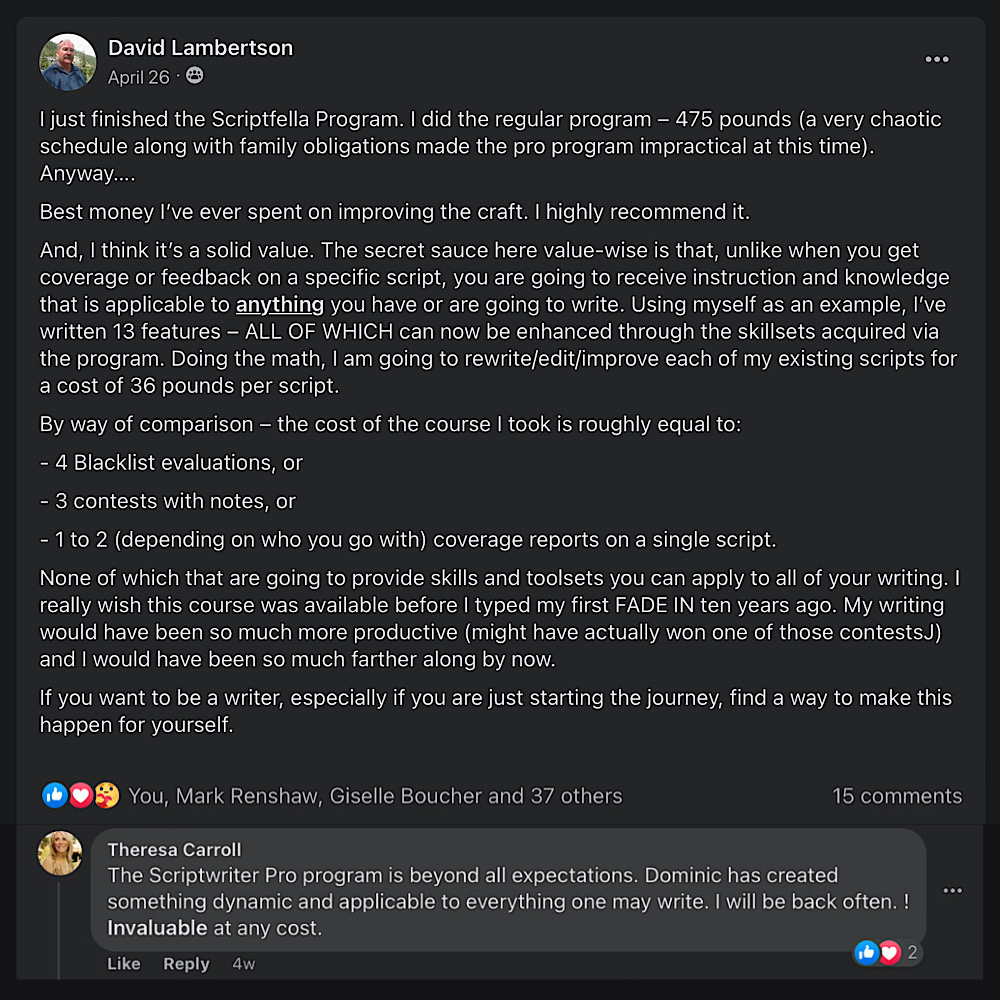
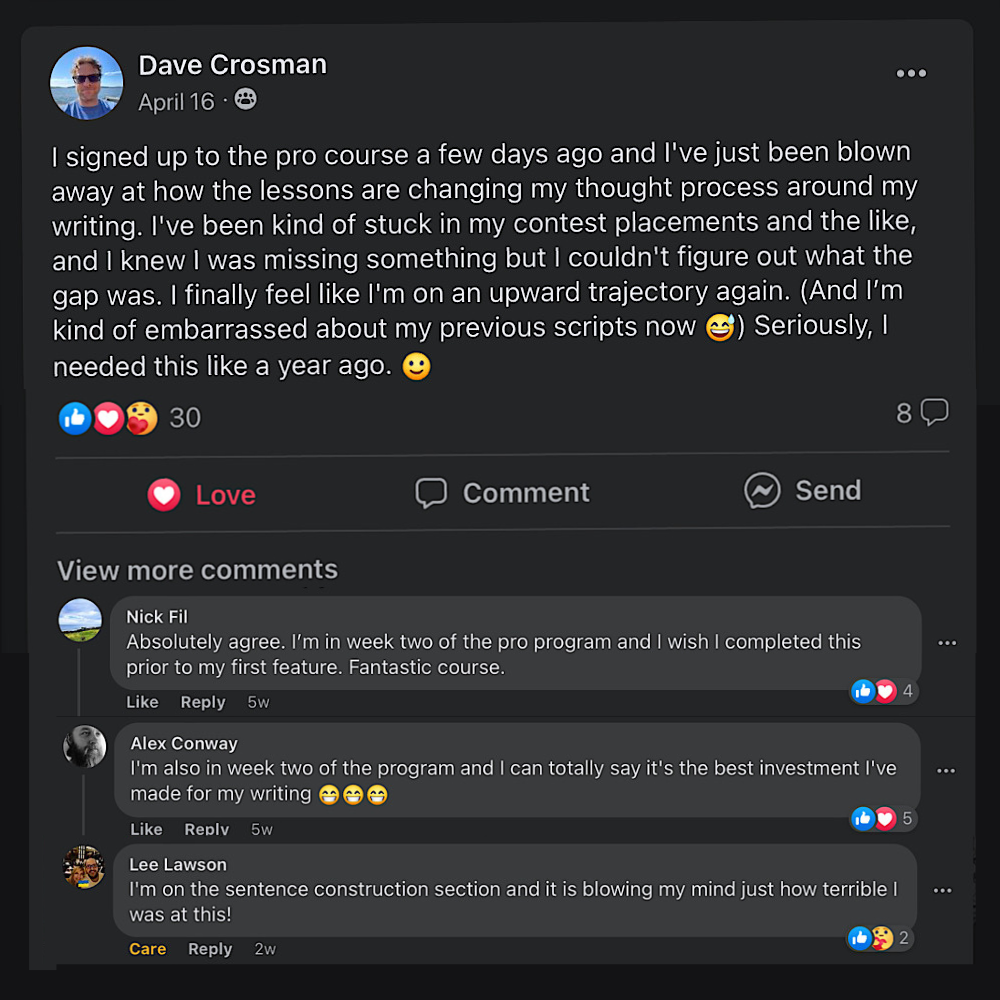
Pedro Correa | Writer/Director
"No one is teaching what Dom's teaching. It's like Plato's Cave; once you've seen the light, it can't be unseen."
Sophie Lane Curtis | Writer/Director
"Dom helps you not only find your voice, but own your voice. Thank you for honestly changing my life."
Doug Tucker | Screenwriter
"My creative partner read my new draft and went 'Holy sh!t...' "
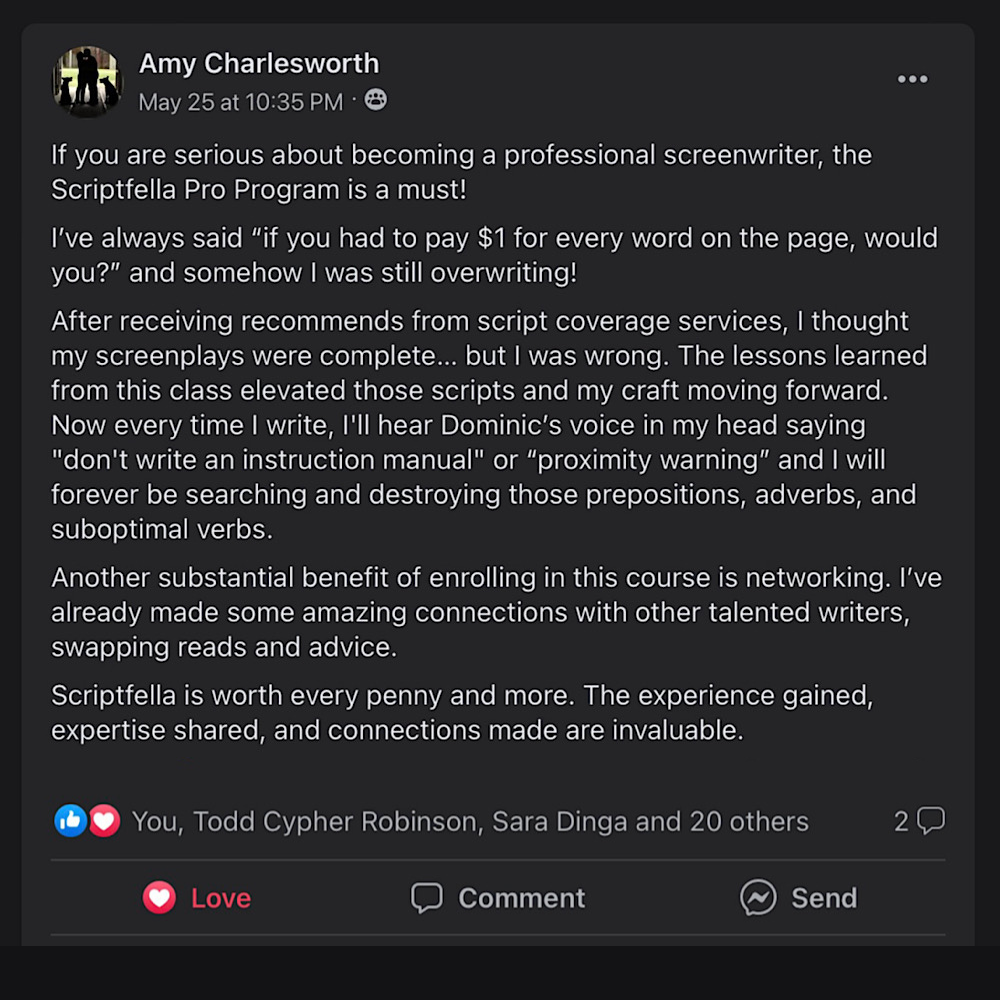
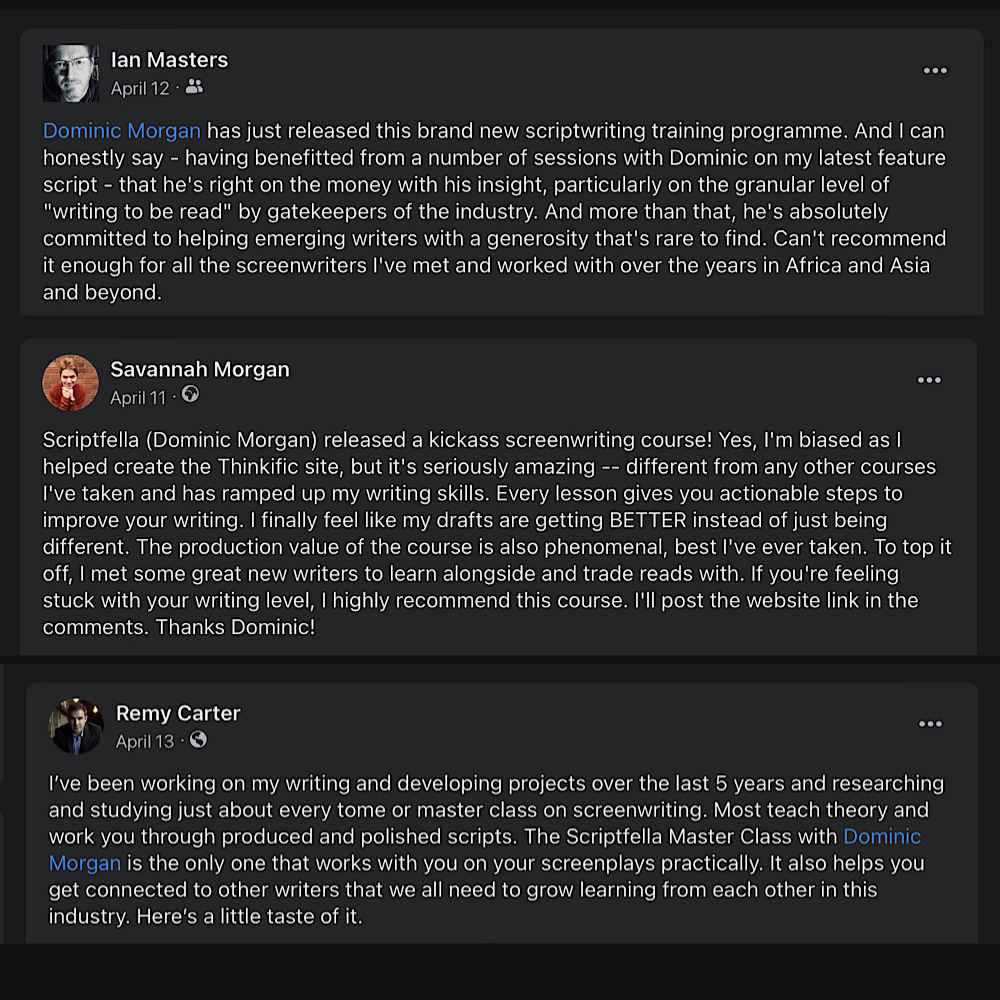
Sara Dinga | Screenwriter
"It's not only the best screenwriting course, it's the most fun"
Braden Croft | Writer/Director
"You learn to manipulate the reader in the best way possible -- by bringing them into the story."
Savannah M. | Screenwriter
"This is the first course to give me a roadmap for HOW to be a better writer. I see the improvement week on week!"
Text & media
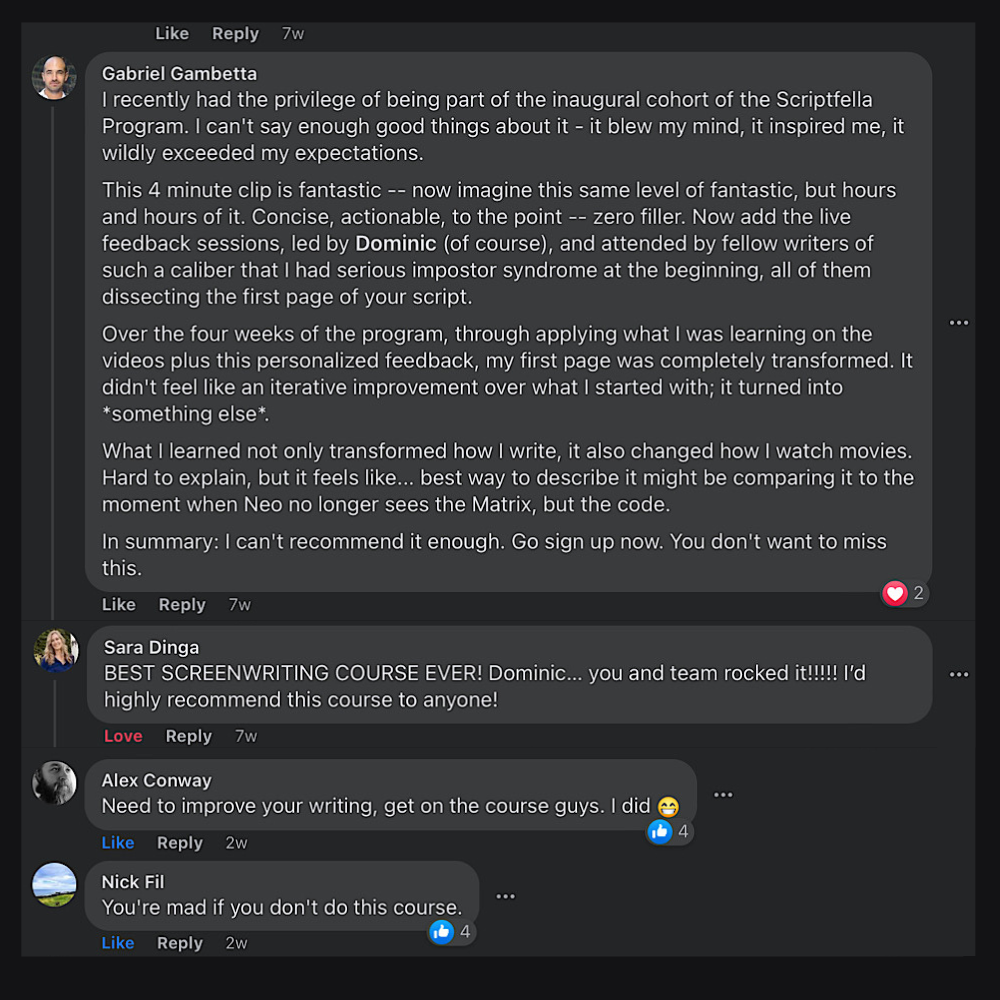
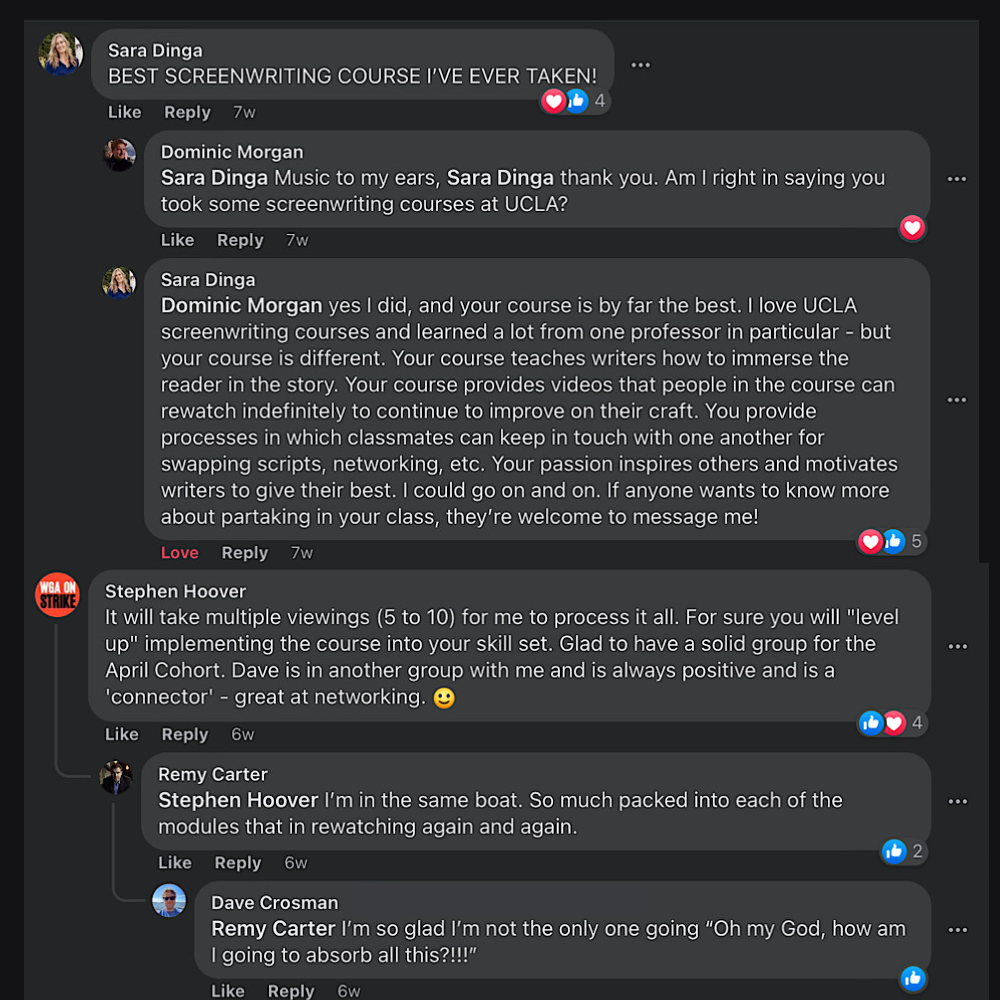
Text & media
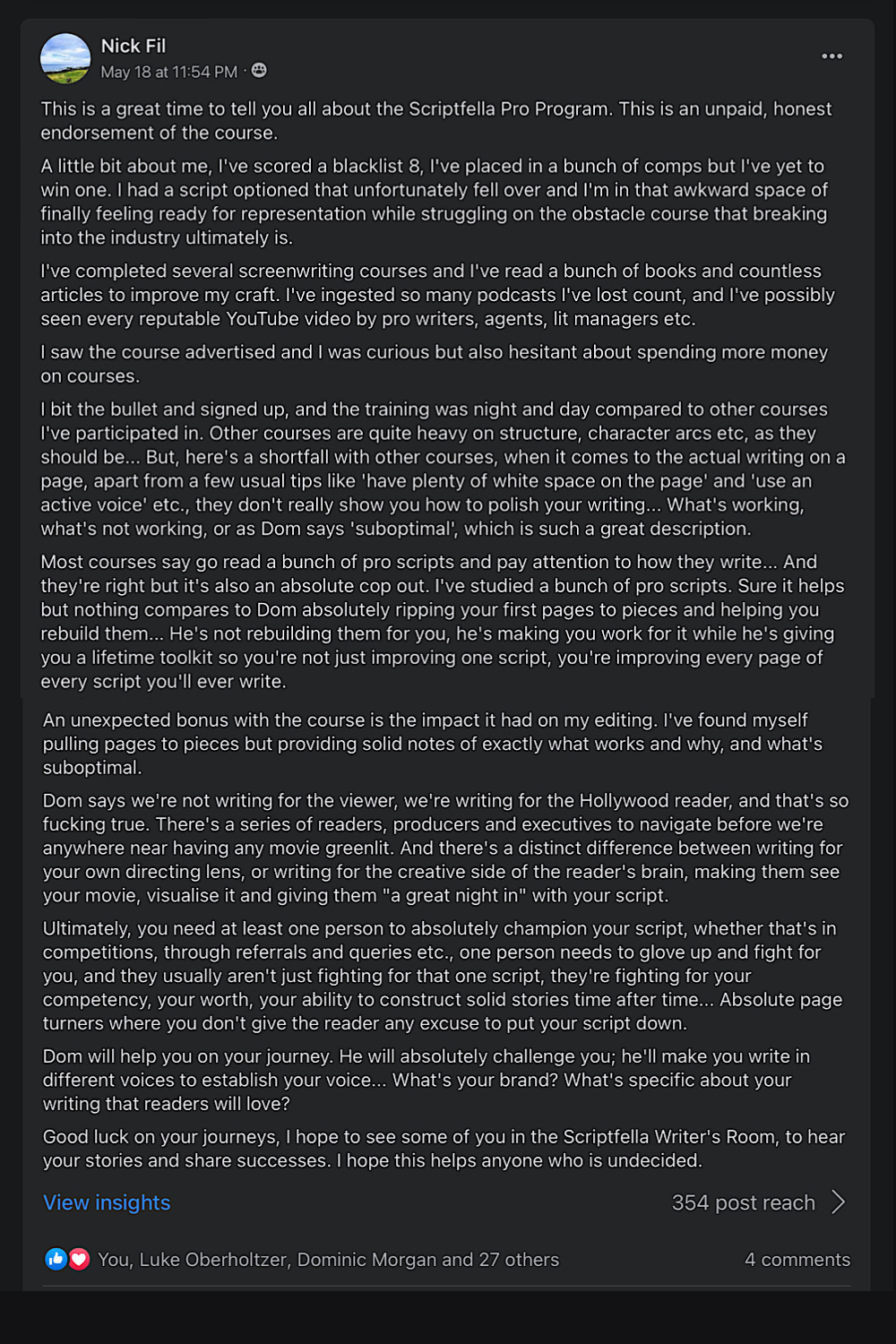
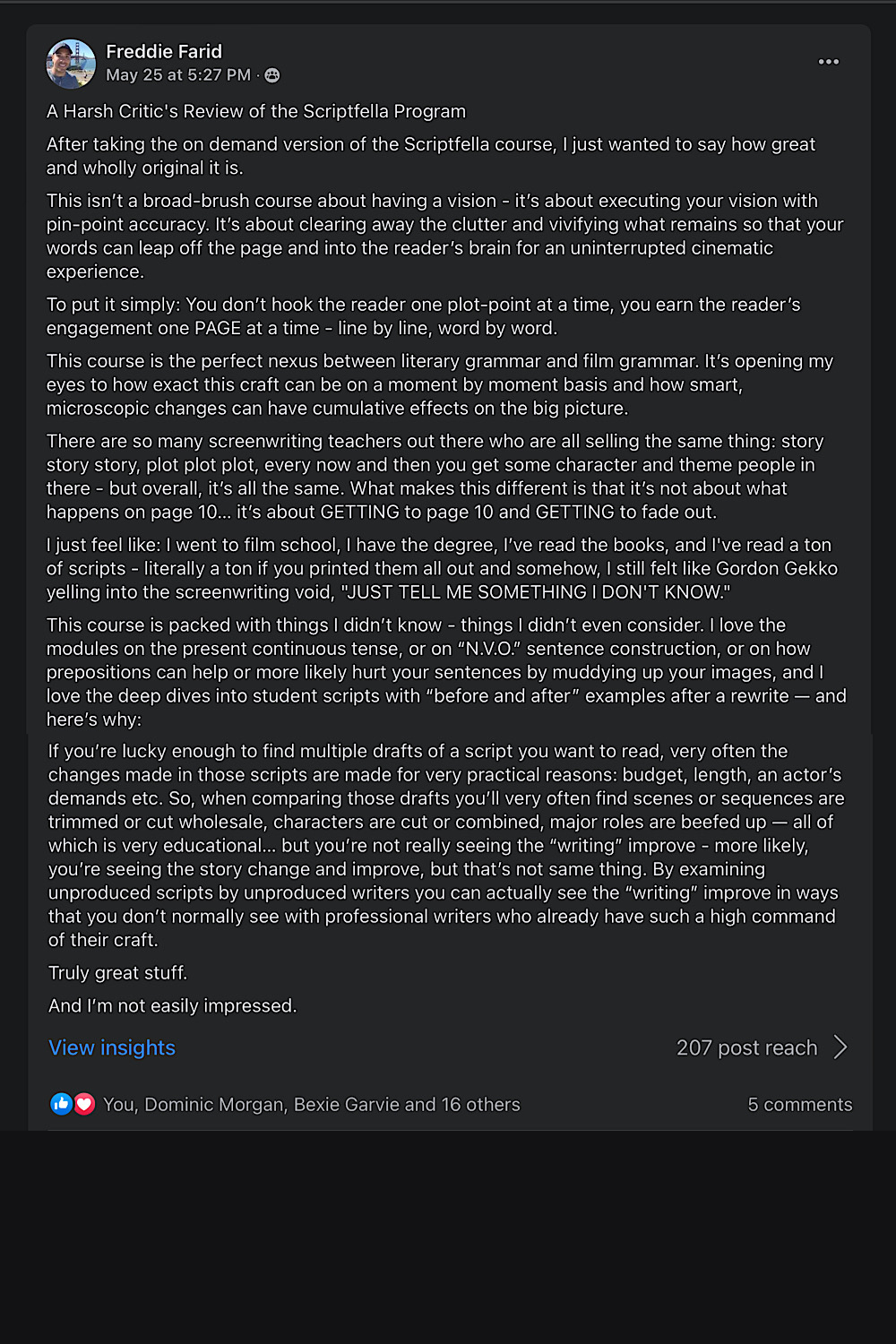
Mobile Only Long







Nick Fil
This is a great time to tell you all about the Scriptfella Pro Program. This is an unpaid, honest endorsement of the course. A little bit about me, I've scored a blacklist 8, I've placed in a bunch of comps but I've yet to win one. I had a script optioned that unfortunately fell over and I'm in that awkward space of finally feeling ready for representation while struggling on the obstacle course that breaking into the industry ultimately is. I've completed several screenwriting courses and I've read a bunch of books and countless articles to improve my craft. I've ingested so many podcasts I've lost count, and I've possibly seen every reputable YouTube video by pro writers, agents, lit managers etc. I saw the course advertised and I was curious but also hesitant about spending more money on courses. I bit the bullet and signed up, and the training was night and day compared to other courses I've participated in. Other courses are quite heavy on structure, character arcs etc, as they should be... But, here's a shortfall with other courses, when it comes to the actual writing on a page, apart from a few usual tips like 'have plenty of white space on the page' and 'use an active voice' etc., they don't really show you how to polish your writing... What's working, what's not working, or as Dom says 'suboptimal', which is such a great description. Most courses say go read a bunch of pro scripts and pay attention to how they write... And they're right but it's also an absolute cop out. I've studied a bunch of pro scripts. Sure it helps but nothing compares to Dom absolutely ripping your first pages to pieces and helping you rebuild them... He's not rebuilding them for you, he's making you work for it while he's giving you a lifetime toolkit so you're not just improving one script, you're improving every page of every script you'll ever write. An unexpected bonus with the course is the impact it had on my editing. I've found myself pulling pages to pieces but providing solid notes of exactly what works and why, and what's suboptimal. Dom says we're not writing for the viewer, we're writing for the Hollywood reader, and that's so fucking true. There's a series of readers, producers and executives to navigate before we're anywhere near having any movie greenlit. And there's a distinct difference between writing for your own directing lens, or writing for the creative side of the reader's brain, making them see your movie, visualise it and giving them "a great night in" with your script. Ultimately, you need at least one person to absolutely champion your script, whether that's in competitions, through referrals and queries etc., one person needs to glove up and fight for you, and they usually aren't just fighting for that one script, they're fighting for your competency, your worth, your ability to construct solid stories time after time... Absolute page turners where you don't give the reader any excuse to put your script down. Dom will help you on your journey. He will absolutely challenge you; he'll make you write in different voices to establish your voice... What's your brand? What's specific about your writing that readers will love? Good luck on your journeys, I hope to see some of you in the Scriptfella Writer's Room, to hear your stories and share successes. I hope this helps anyone who is undecided.
Freddie Farid
A Harsh Critic's Review of the Scriptfella Program
After taking the on demand version of the Scriptfella course, I just wanted to say how great and wholly original it is. This isn’t a broad-brush course about having a vision - it’s about executing your vision with pin-point accuracy. It’s about clearing away the clutter and vivifying what remains so that your words can leap off the page and into the reader’s brain for an uninterrupted cinematic experience. To put it simply: You don’t hook the reader one plot-point at a time, you earn the reader’s engagement one PAGE at a time - line by line, word by word. This course is the perfect nexus between literary grammar and film grammar. It’s opening my eyes to how exact this craft can be on a moment by moment basis and how smart, microscopic changes can have cumulative effects on the big picture. There are so many screenwriting teachers out there who are all selling the same thing: story story story, plot plot plot, every now and then you get some character and theme people in there - but overall, it’s all the same. What makes this different is that it’s not about what happens on page 10… it’s about GETTING to page 10 and GETTING to fade out. I just feel like: I went to film school, I have the degree, I’ve read the books, and I've read a ton of scripts - literally a ton if you printed them all out and somehow, I still felt like Gordon Gekko yelling into the screenwriting void, "JUST TELL ME SOMETHING I DON'T KNOW." This course is packed with things I didn’t know - things I didn’t even consider. I love the modules on the present continuous tense, or on “N.V.O.” sentence construction, or on how prepositions can help or more likely hurt your sentences by muddying up your images, and I love the deep dives into student scripts with “before and after” examples after a rewrite — and here’s why: If you’re lucky enough to find multiple drafts of a script you want to read, very often the changes made in those scripts are made for very practical reasons: budget, length, an actor’s demands etc. So, when comparing those drafts you’ll very often find scenes or sequences are trimmed or cut wholesale, characters are cut or combined, major roles are beefed up — all of which is very educational… but you’re not really seeing the “writing” improve - more likely, you’re seeing the story change and improve, but that’s not same thing. By examining unproduced scripts by unproduced writers you can actually see the “writing” improve in ways that you don’t normally see with professional writers who already have such a high command of their craft. Truly great stuff. And I’m not easily impressed.